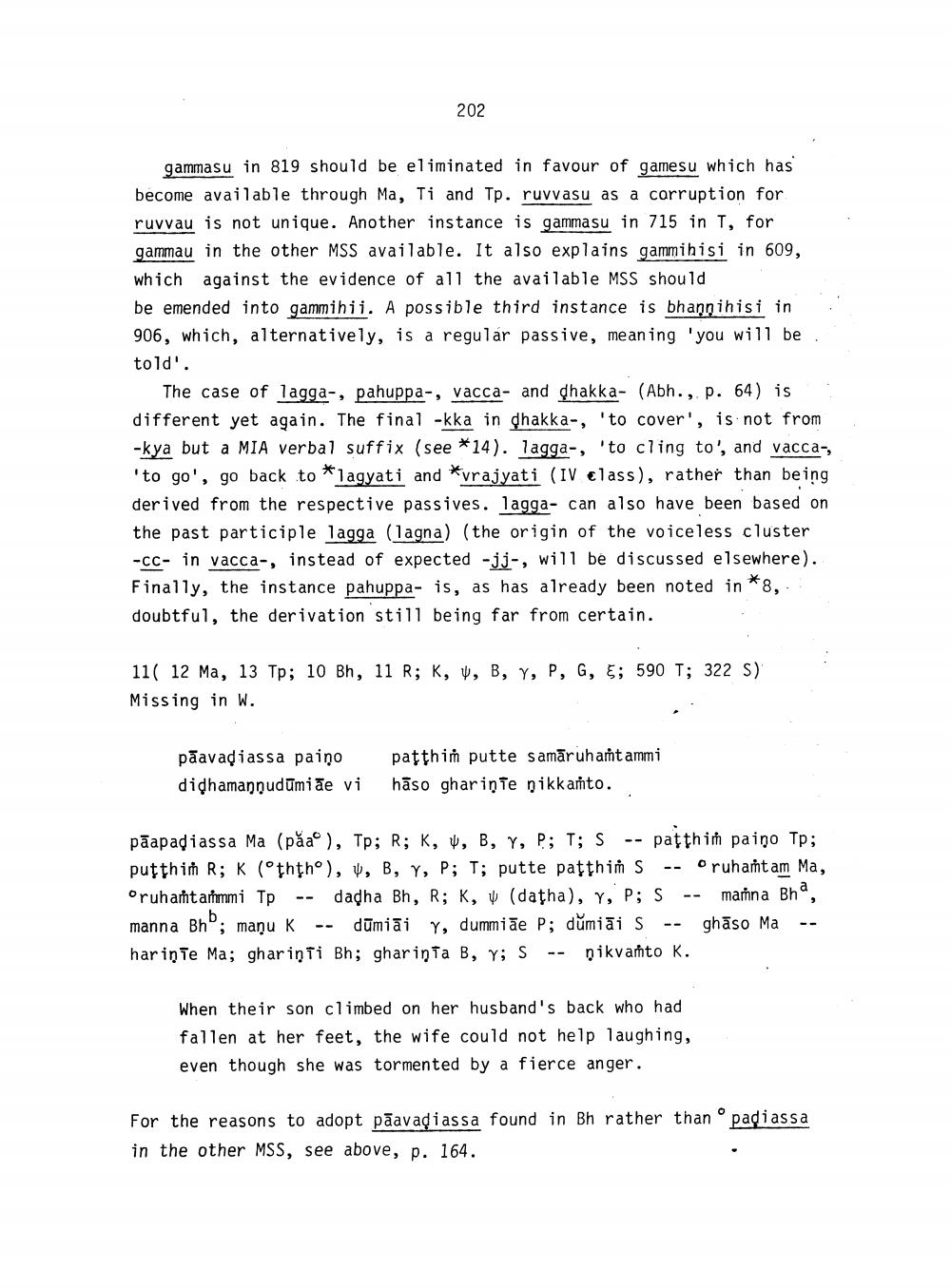________________
202
gammasu in 819 should be eliminated in favour of gamesu which has become available through Ma, Ti and Tp. ruvvasu as a corruption for ruvvau is not unique. Another instance is gammasu in 715 in T, for gammau in the other MSS available. It also explains gammihisi in 609, which against the evidence of all the available MSS should be emended into gammihii. A possible third instance is bhaņņihisi in : 906, which, alternatively, is a regular passive, meaning 'you will be told'.
The case of lagga-, pahuppa-, vacca- and dhakka- (Abh., p. 64) is different yet again. The final -kka in dhakka-, 'to cover', is not from -kya but a MIA verbal suffix (see *14). lagga-, 'to cling to', and vacca'to go', go back to *lagyati and *vrajyati (IV class), rather than being derived from the respective passives. lagga- can also have been based on the past participle lagga (lagna) (the origin of the voiceless cluster -CC-in vacca-, instead of expected -jj-, will be discussed elsewhere). Finally, the instance pahuppa- is, as has already been noted in *8, doubtful, the derivation still being far from certain.
11( 12 Ma, 13 Tp; 10 Bh, 11 R; K, V, B, Y, P, G, 5; 590 T; 322 s) Missing in W.
pāavadiassa paino didhamannudūmiāe vi
patthim putte samāruhaṁt ammi hāso ghariņte nikkaṁto.
pāapadiassa Ma (paa), Tp; R; K, M, B, Y, P; T; S -- patthiṁ paino Tp; puţthim R; K (oththo), V, B, Y, P; T; putte patthim S -- ruhaṁt am Ma, Oruhaît ainmmi Tp -- dadha Bh, R; K, V (datha), Y, P; S -- mamna Bho, manna Bh"; manu K -- dūmiai Y, dummiāe P; důmiāi S -- ghāso Ma -- harinte Ma; gharinti Bh; gharinta B, Y; S -- nikvasto K.
When their son climbed on her husband's back who had fallen at her feet, the wife could not help laughing, even though she was tormented by a fierce anger.
For the reasons to adopt pāavadiassa found in Bh rather than padiassa in the other MSS, see above, p. 164.




